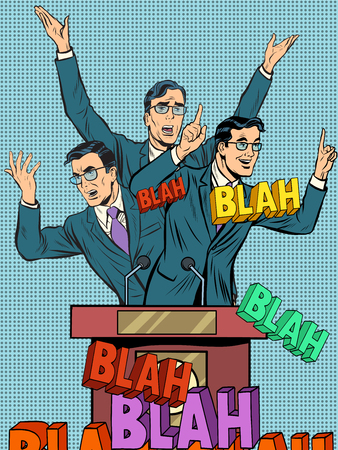Copyright: <a href=’https://www.123rf.com/profile_studiostoks’>studiostoks / 123RF Stock Photo</a>
As the country prepares to go the ballot box and decide who it wants in charge of its finances, defence, health service and so on, we’re going to take a look at the main players in the battle, and what they’ve done from a leadership perspective.
We’re not going to discuss policies and which party we support. This is about the leadership and the good and bad things the main players have done.
It’s probably best to start with Theresa May. Not for favouritism, but because she’s the current Prime Minister (at the time of writing) and called the election. In terms of leadership, it’s fair to say she’s had a mixed bag of results, so let’s have a look at the good stuff first.
Calling the election was a great bit of leadership at the time as her party was miles ahead in the polls, and she was hoping to use it to strengthen her hand further, although she publicly said there wouldn’t be an election a few months beforehand.
Her party was united behind her and her personal approval rating was very strong during the first few weeks of the campaign. Women in particular looked to her as a strong leader and as someone they want to see take them through Brexit and beyond. Her image was also front and centre of all the party campaign literature, and the polls stayed favourable. So far so good.
Now, on to the not so good. Things started to go astray with the release of the Conservative manifesto. It was introduced as her own vision and great parts of it was un-costed. It also emerged that some of the policies were in the document without members of her own party’s knowledge.
Following that, there was a bit of backtracking and changing of policy details which led to allegations of weak leadership rather than the strong and stable kind Mrs May talks a lot about. This has increased following the PM’s decision not to take part in the TV debates, although she wasn’t the only party leader to give at least one of them a swerve.
Jeremy Corbyn has also had a mixed-bag. Before the campaign even got going, there were stories of Labour MPs queuing up to form a breakaway party after an embarrassing election defeat. Not many Labour MPs had Mr Corbyn on their party literature, or would even endorse him in interviews.
However, Mr Corbyn has shown great leadership with his media presence. He’s received praise for his calm, rational manner and eloquence. And he’s kept his MPs out of the limelight when they’ve not performed well on TV or radio. There has been the odd gaffe with figures and some associations in his past, but as the polls have narrowed, there’s no doubt Mr Corbyn has surprised many with his displays of strong leadership when it matters.
Among the smaller parties, Tim Farron of the Lib Dems has not had a particularly great campaign leadership-wise. He dodged a gay-marriage question several times after he was shown saying it was a sin. But the most damning indictment of him as a leader is that 52% of voters didn’t know who he was in a recent poll. Not good.
UKIP’s Paul Nuttall has been viewed of something of a comedy figure, with constant talk of immigration and even calling Plaid Cymru’s Leanne Wood ‘Natalie’ twice on the same TV show! Leanne Wood and Caroline Lucas have been quietly effective as leaders as they’ve not shied away from asking the bigger parties the difficult questions whilst knowing their only real hope of power lies in a coalition.
In Scotland, Nicola Sturgeon appears as strong a leader as ever with her pursuit of independence. There might not be the appetite for another referendum, but she’s made her party a strong political force in Westminster as well as Edinburgh.
Whatever party they represent, political leaders need to have a compelling, believable vision with a consistent narrative that’s easy to get across to people. How well they achieve this and whether the leaders’ performances in the run up to the election will make any difference when it actually comes to votes is a difficult question to answer. We won’t have to wait too long to find out.








